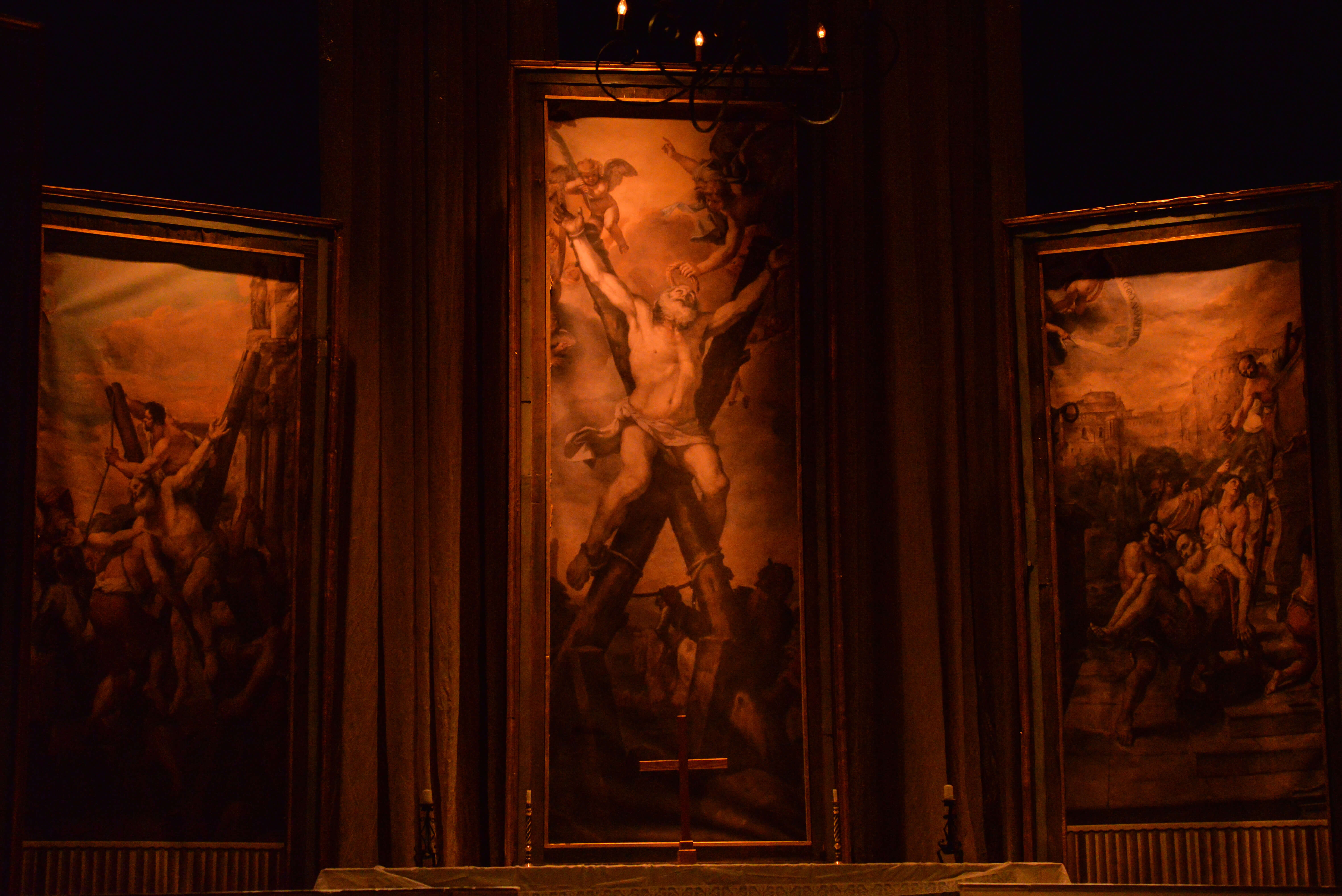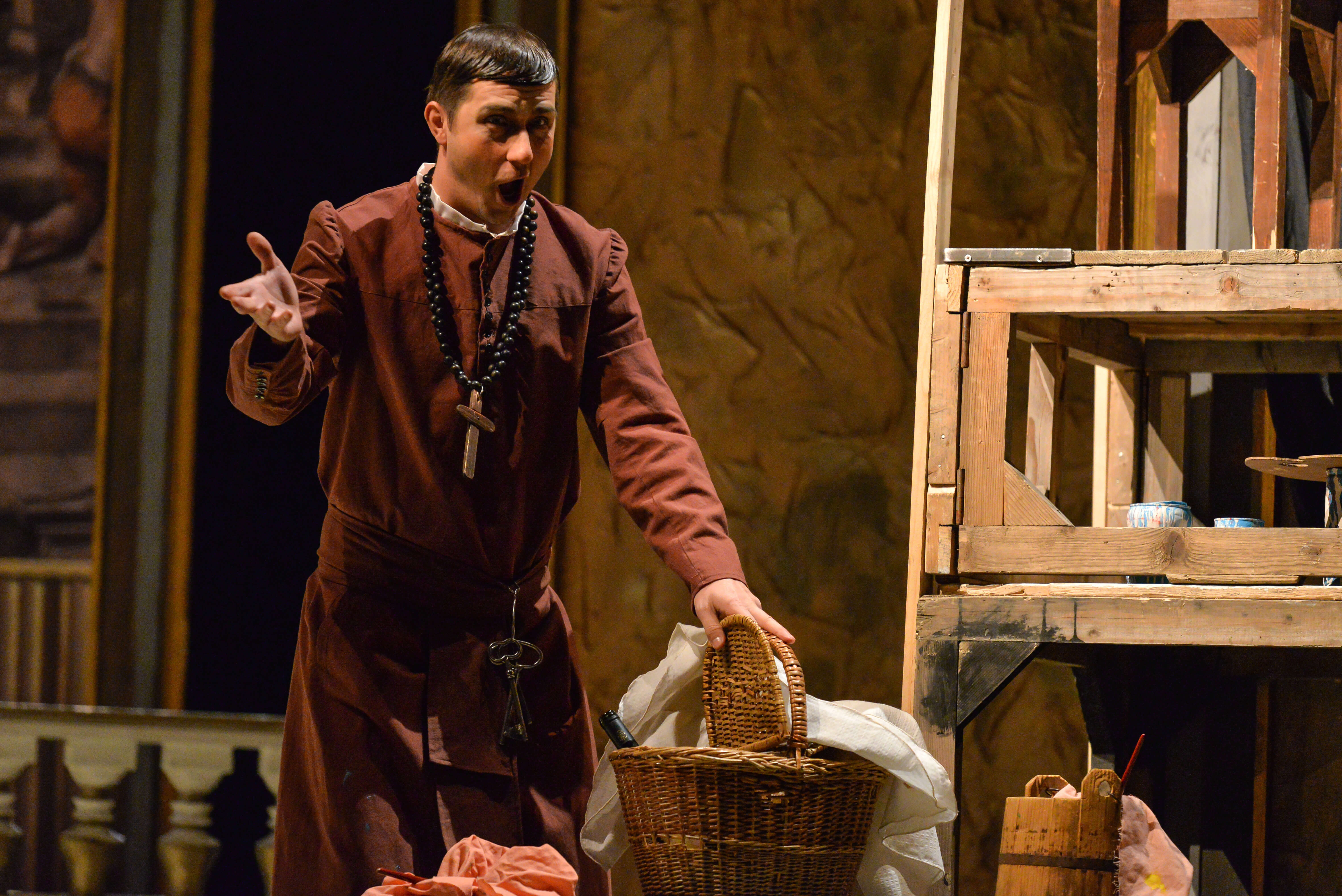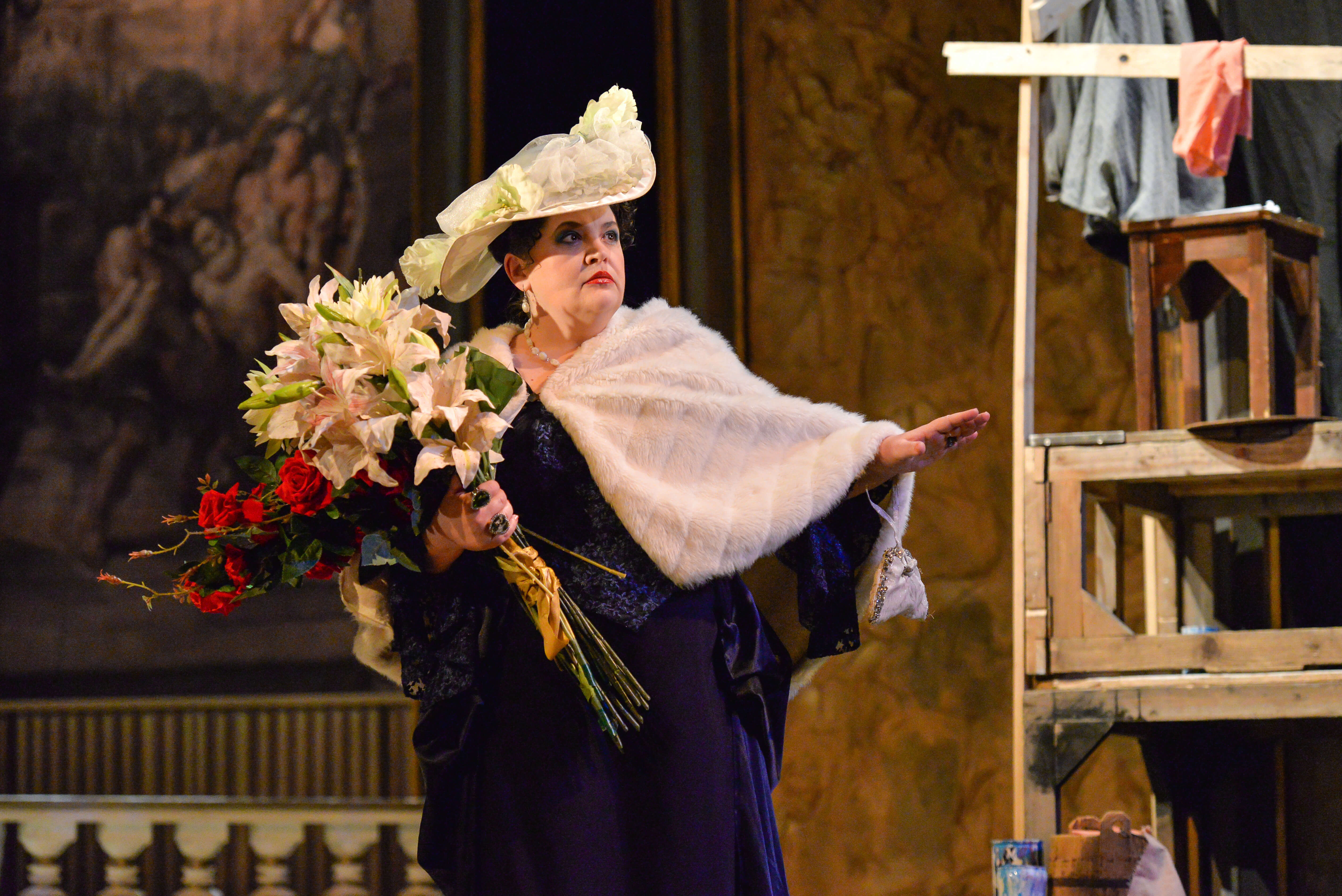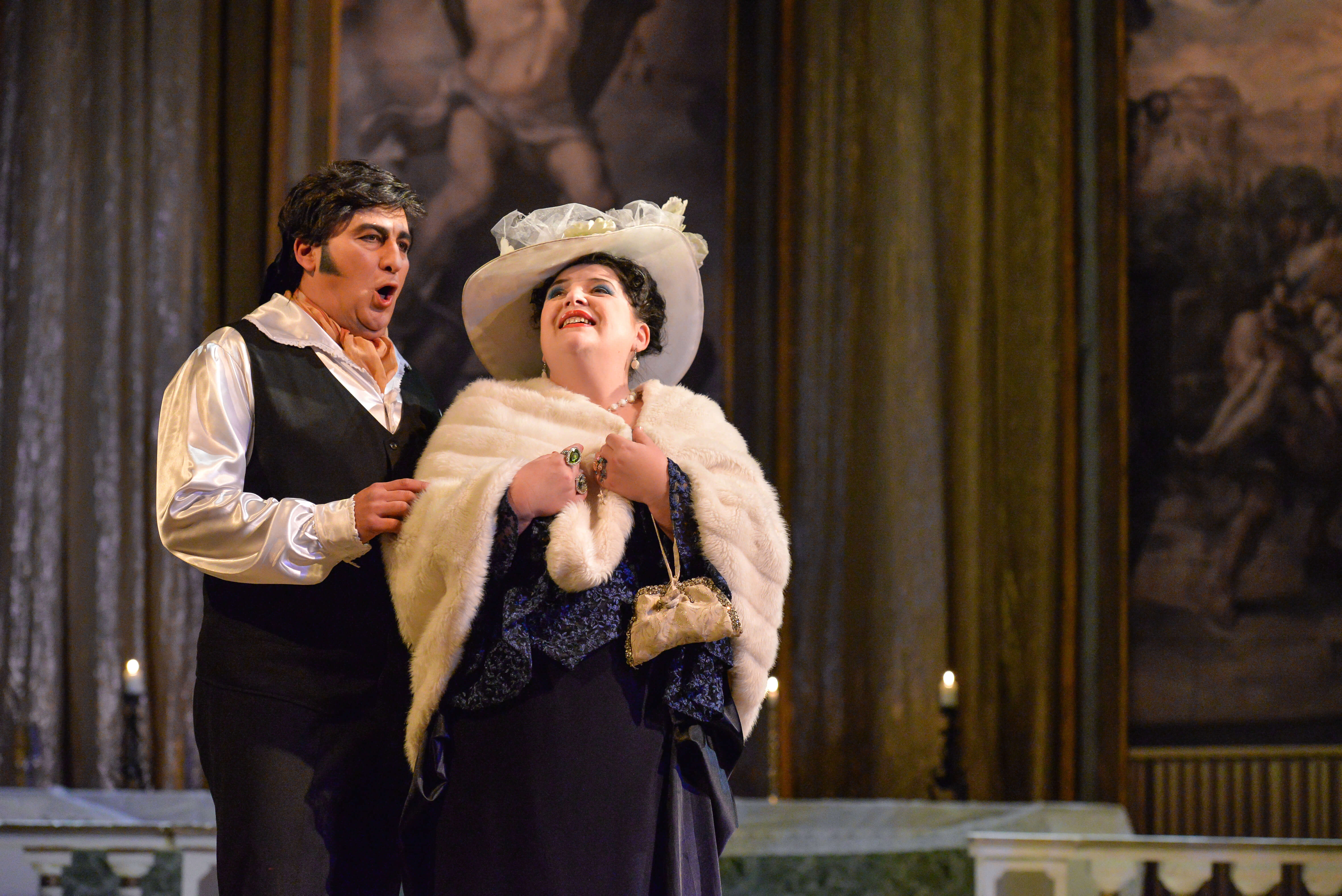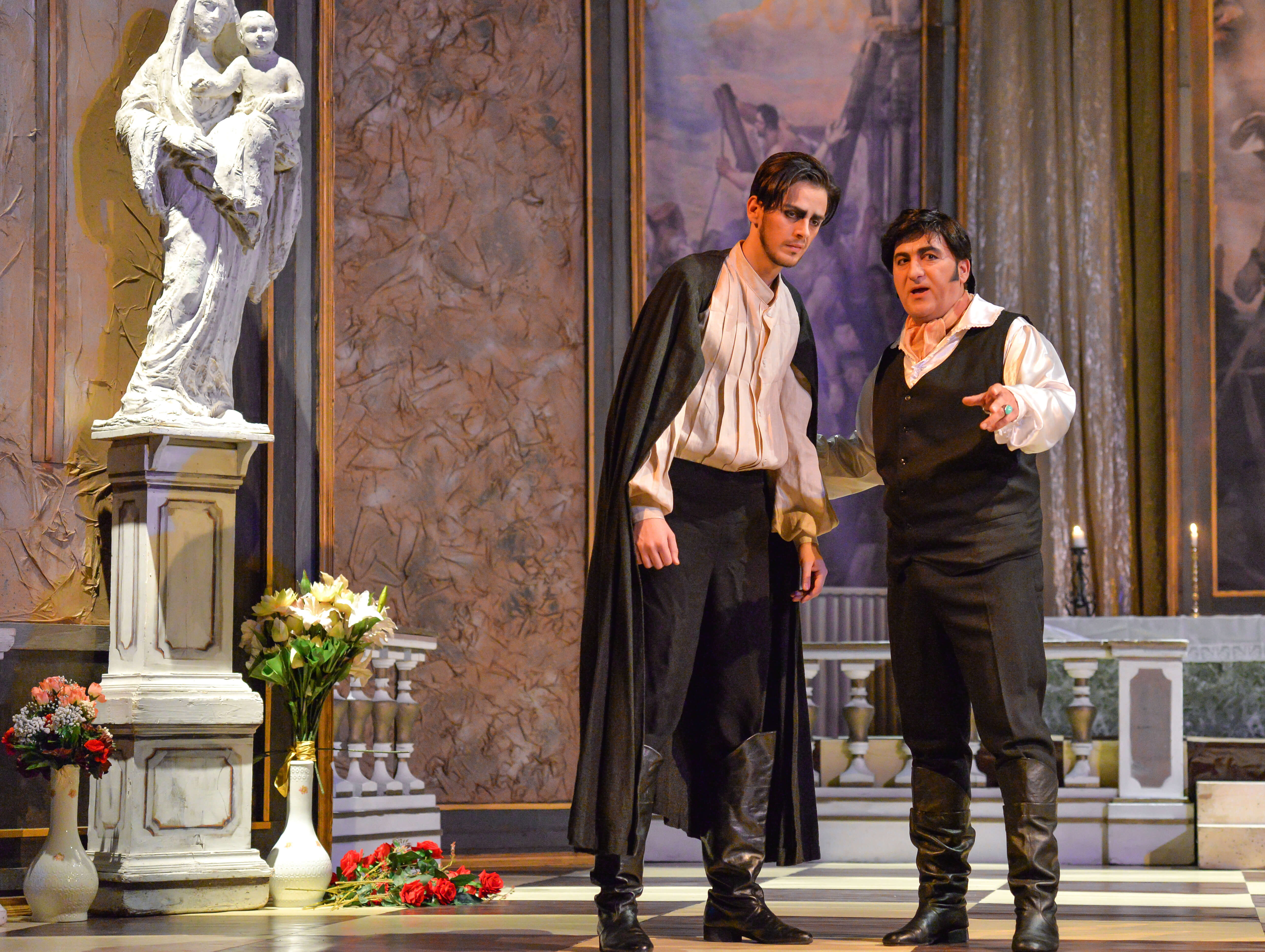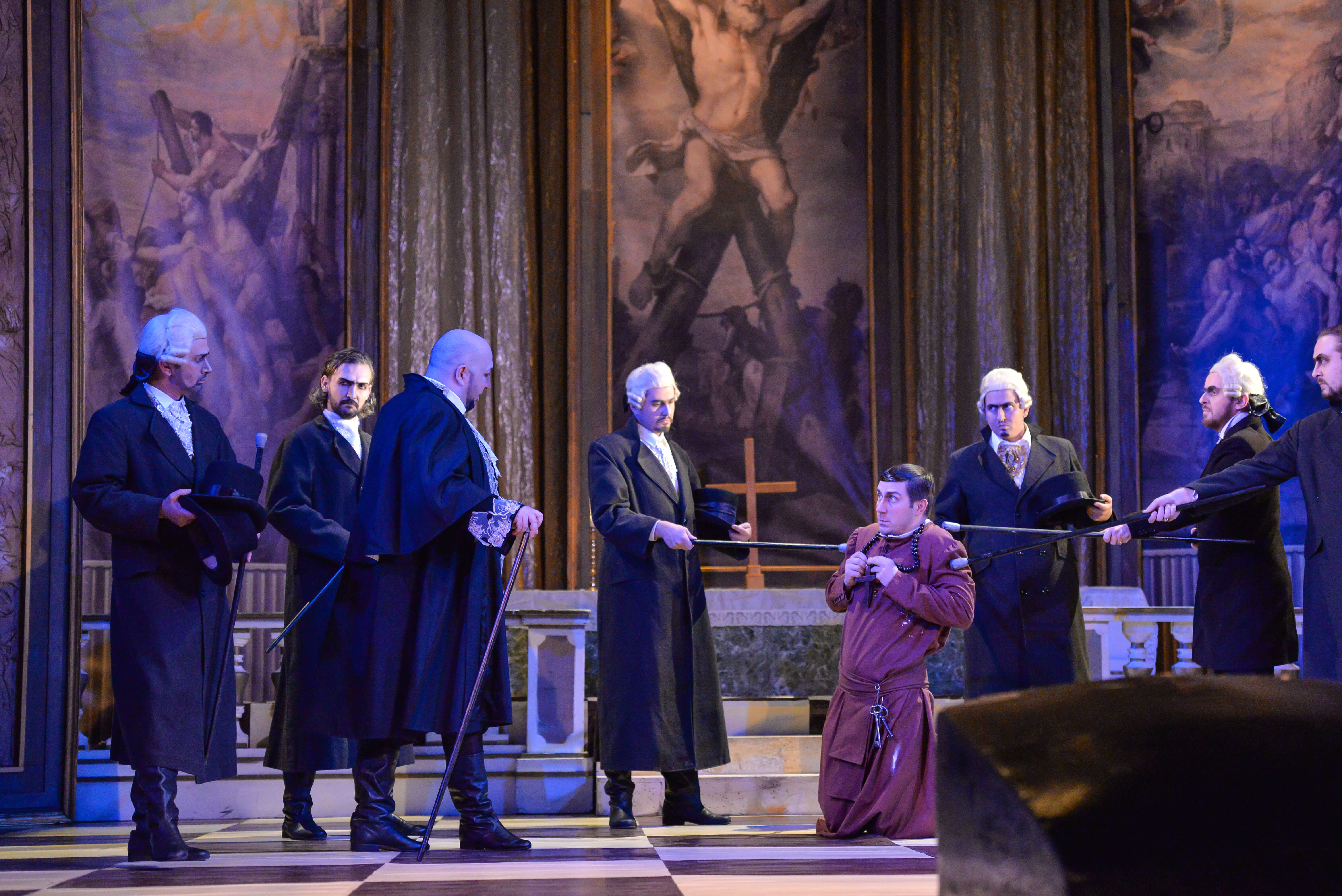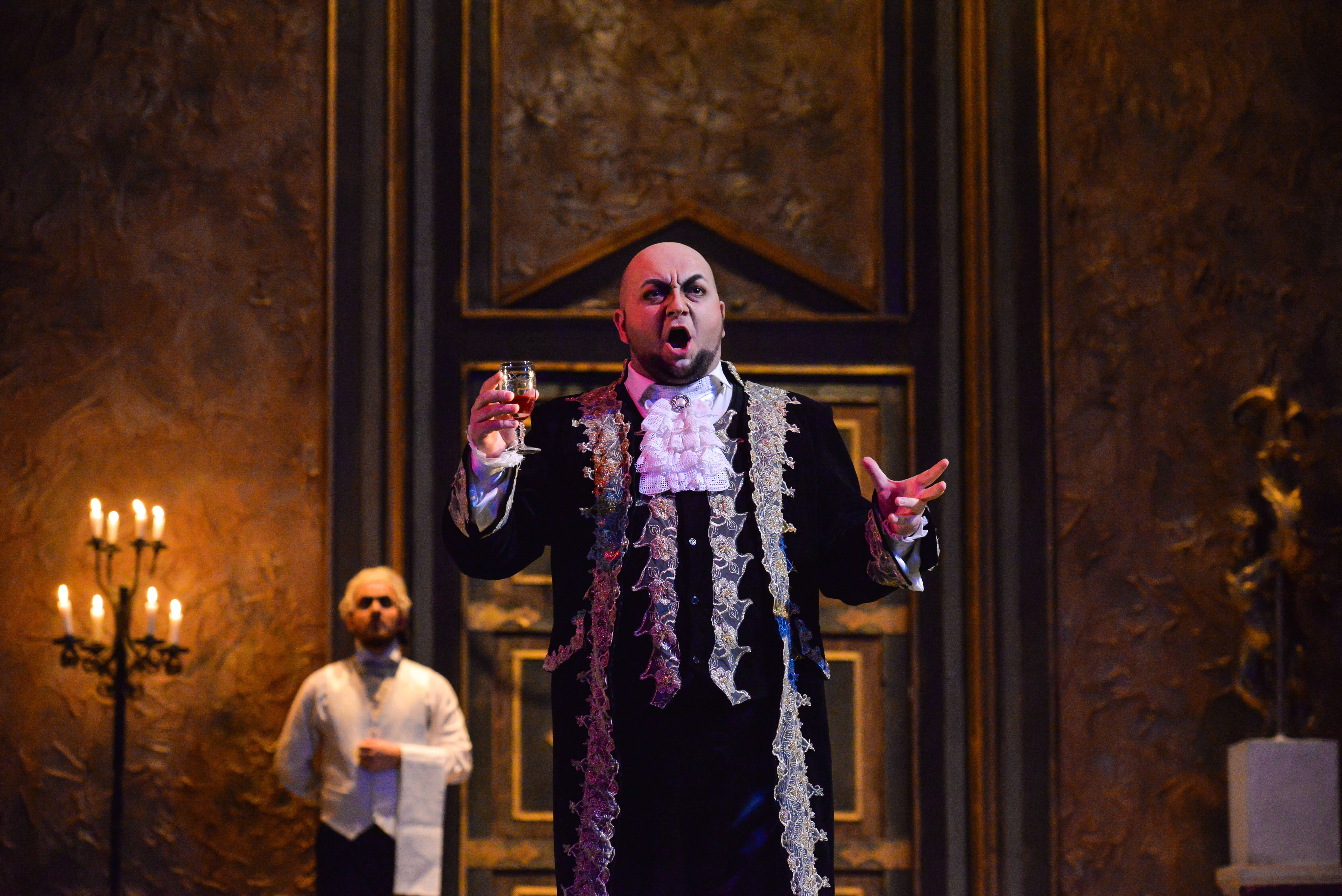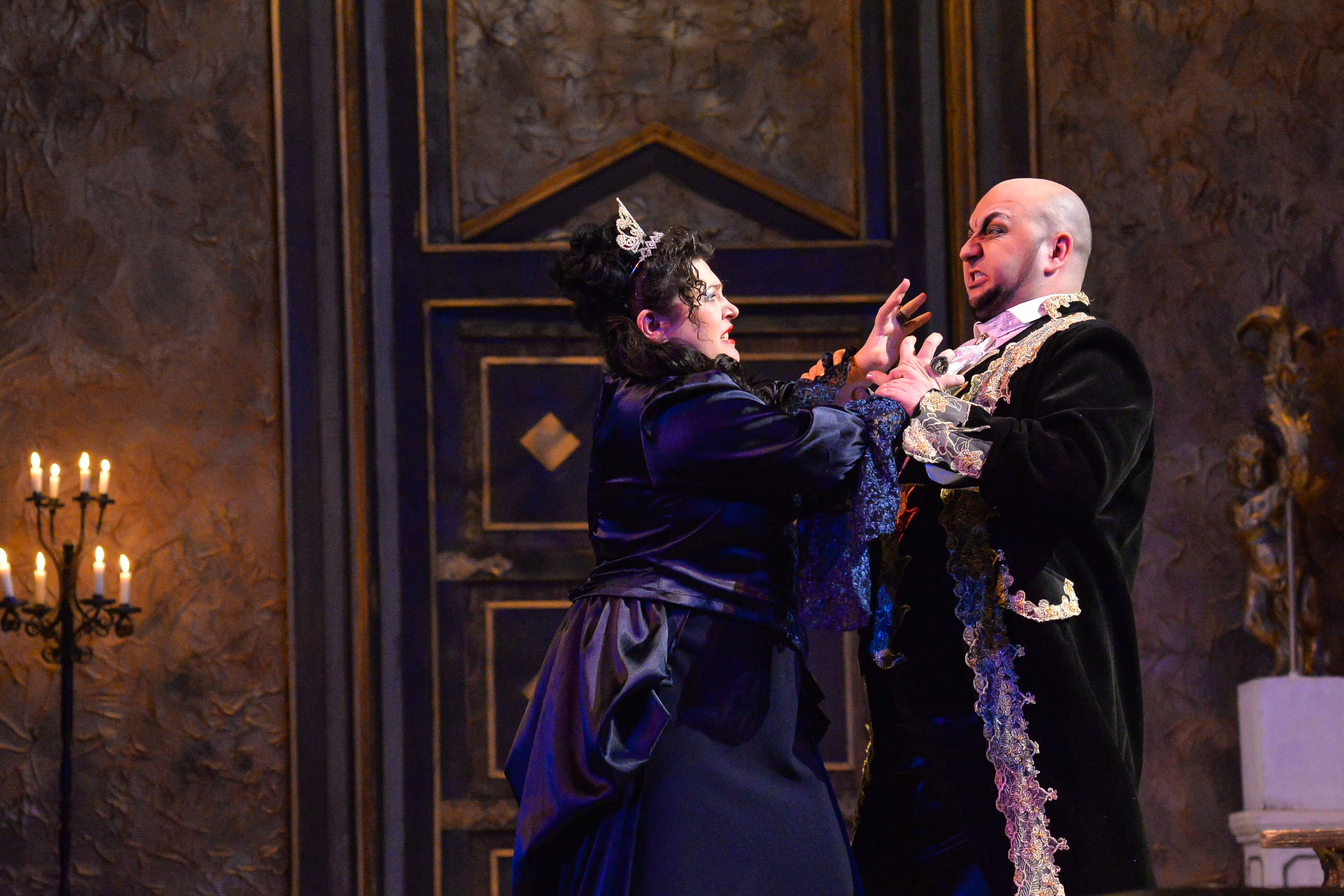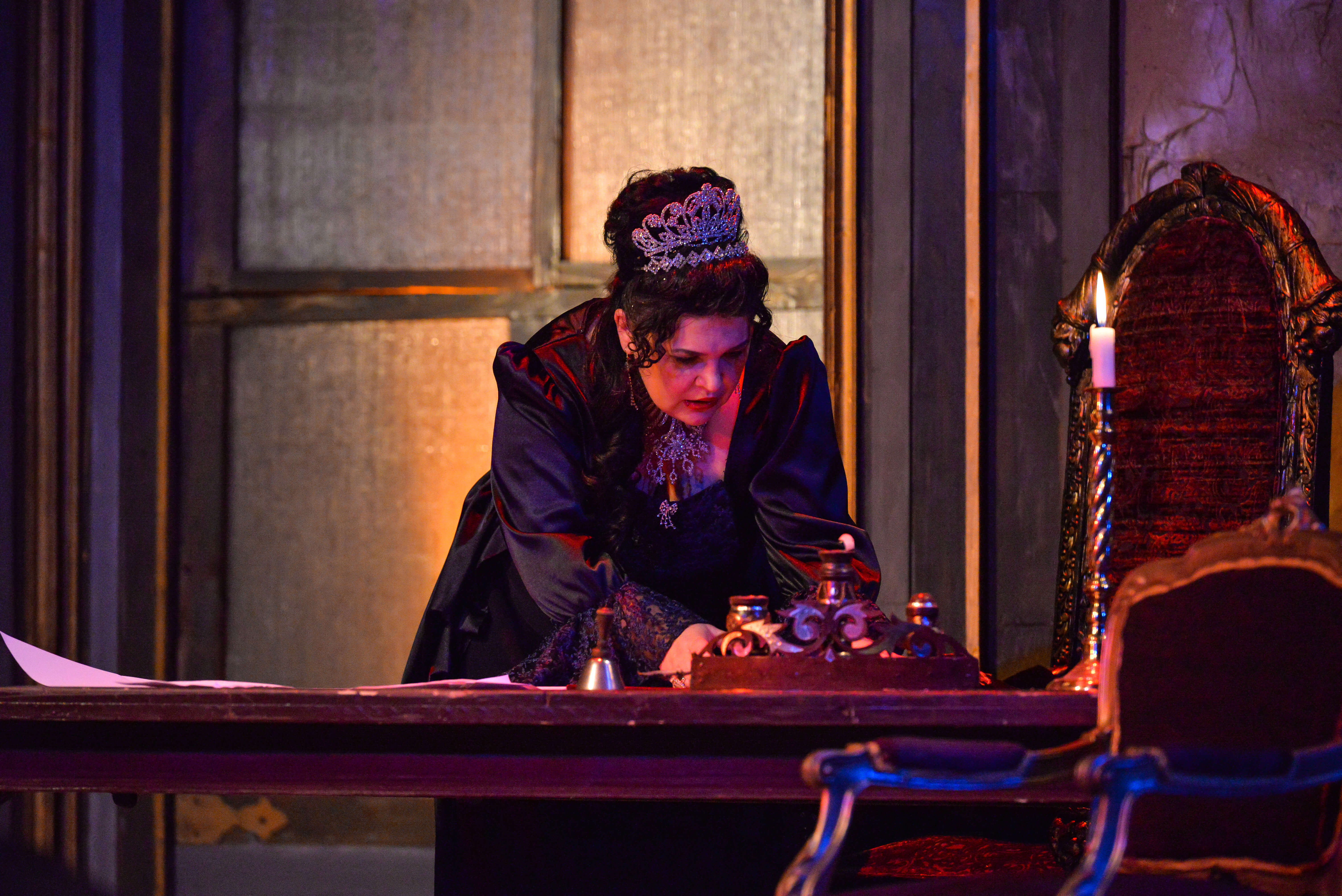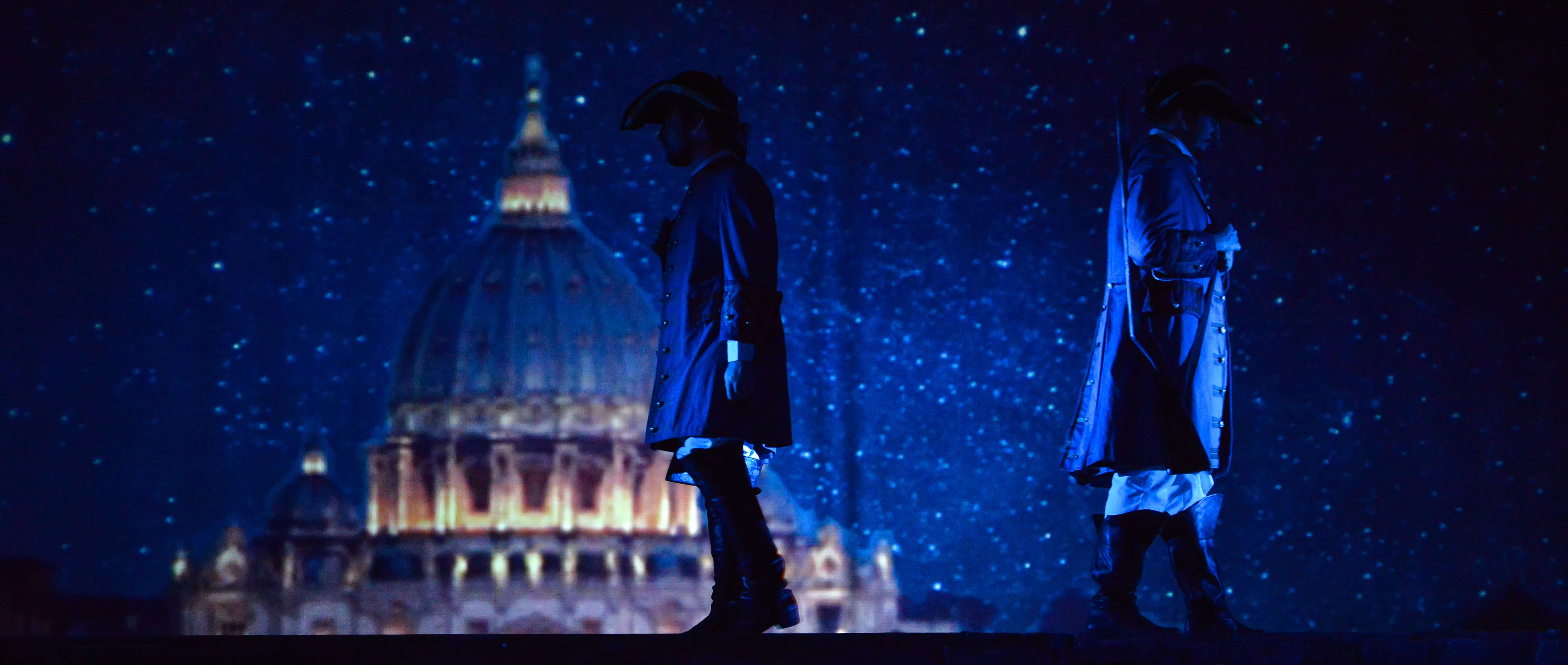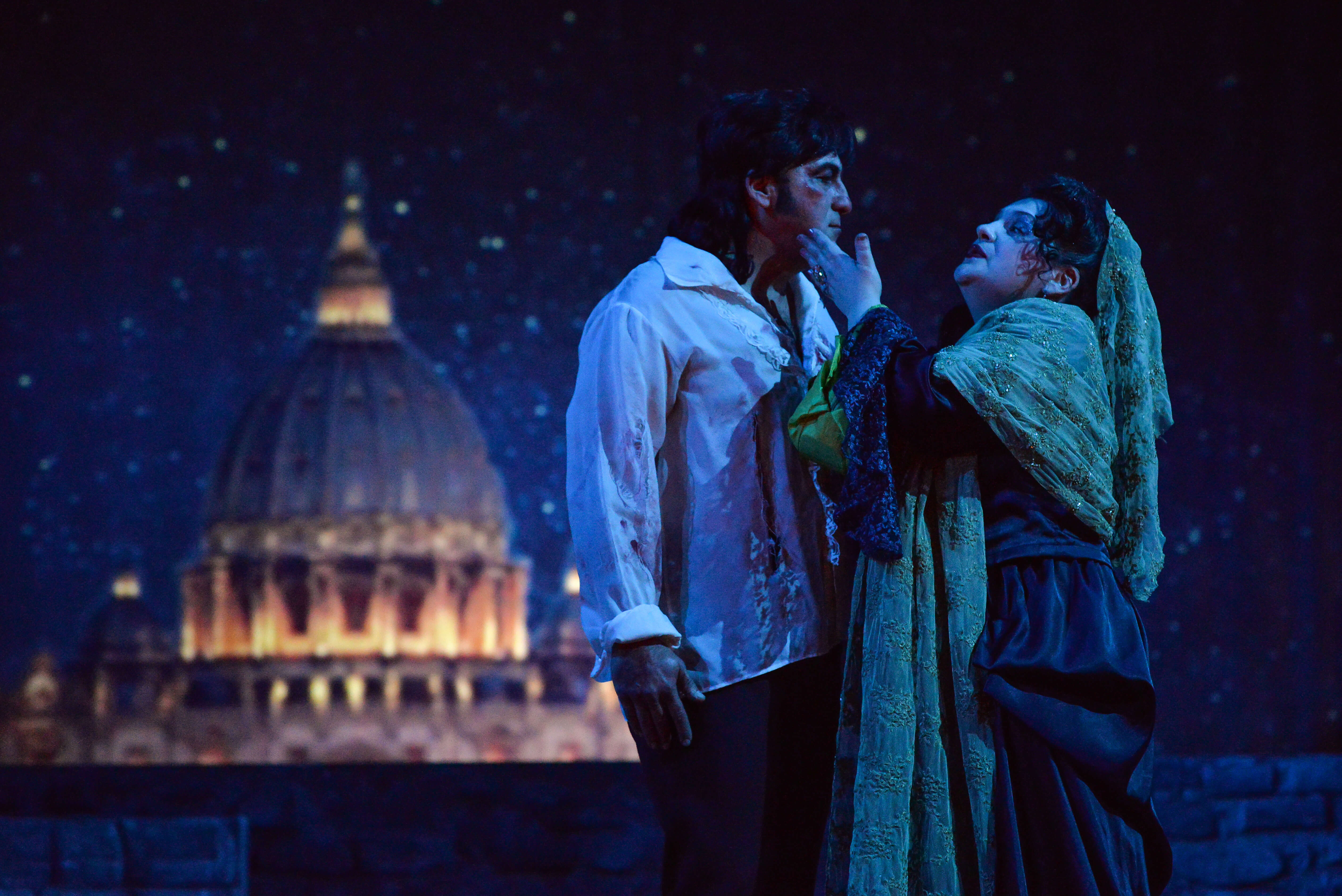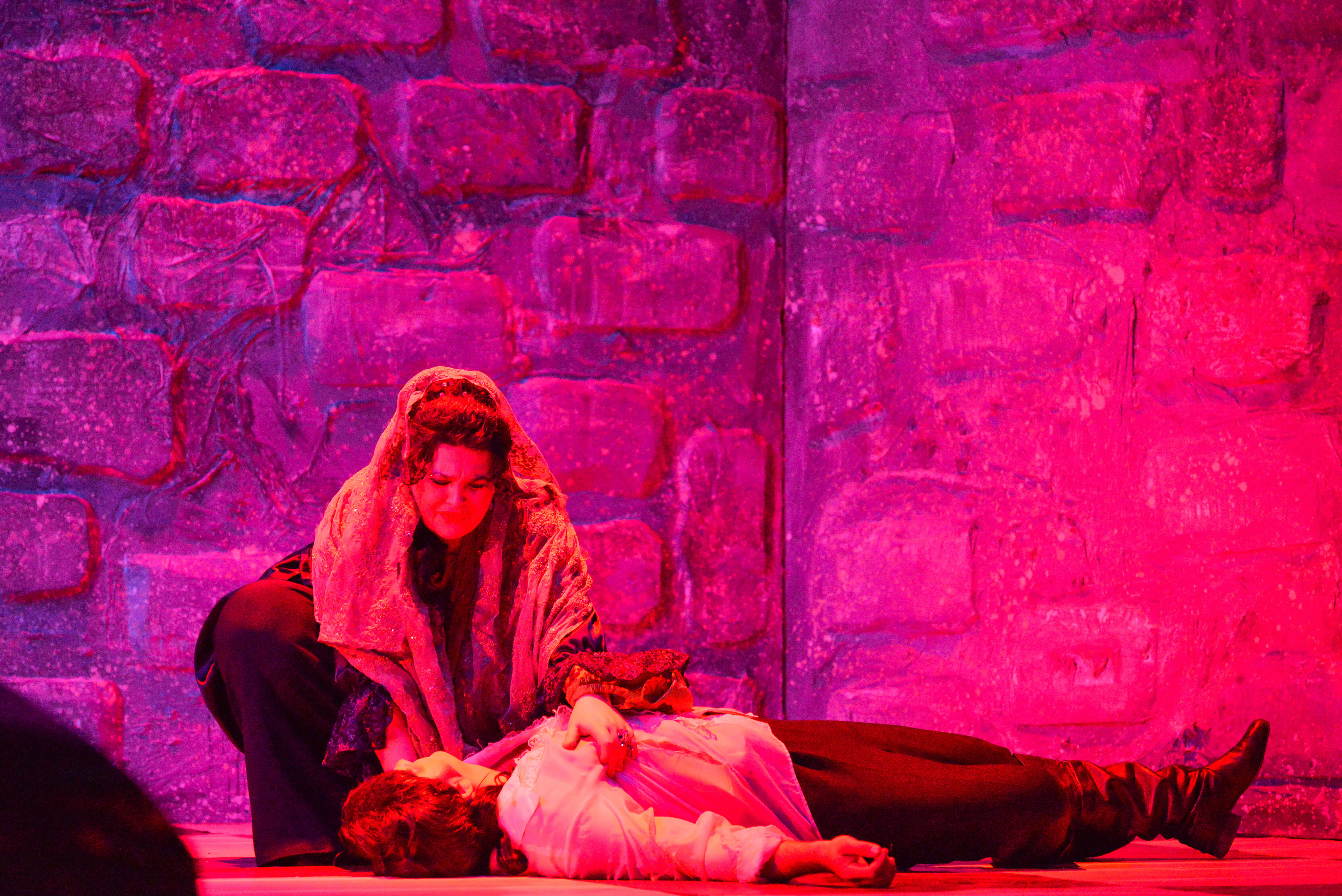
distribution
Artistic direction, lights and scenography (Scenographic adaptation after Andrei Șchiopu): Dan Lupea
Floria Tosca: Aurelia Florian (debut; guest)
Mario Cavaradossi: Ștefan Pop (debut; guest)
Scarpia: Cătălin Țoropoc (guest)
Cesare Angelotti: Florin Sâmpelean (debut)
Sacristanul: Köpeczi Sándor-Attila (guest)
Spoletta: Eusebiu Huțan (debut)
Sciarrone: Sebastian Balaj
Jailer: Corneliu Huțanu (debut)
Sheperd: Natalia Barz
Stage and backstage direction: Alina Simona Nistor
Chorus conductor: Corneliu Felecan
The Orchestra and Chorus of The Romanian National Opera in Cluj-Napoca
Junior VIP Choir of The Romanian National Opera in Cluj-Napoca and Sigismund Toduță Music College Cluj-Napoca
Conductor: Anca Mona Maria
description
show category: opera
Dear spectators,
According to the decision of National Committee for Emergency Situations, all the performances are allowed only in accordance with the legal regulations in force that is, the following conditions:
- public participation is allowed up to 50% of the performance hall capacity;
- every spectator has to present the official QR Code of their SARS-CoV-2 certificate (digital or on paper), proving that they have been fully vaccinated or tested;
- every spectator has to present the proof that he is between 15 and 180 days after the confirmation of contacting the SARS-CoV-2 virus.
Everyone participating the Romanian National Opera in Cluj-Napoca events, has to present their SARS-CoV-2 certificate (digital or on paper) through the official digital certificate approved by the European Union, according to the provisions of the Government Emergency Ordinance no. 68/2021 on the adoption of measures for the implementation of the European framework for the issuance verification and acceptance of the digital certificate COVID-19 of the European Union.
Be aware that every official certificate has to be accompanied by an identity document.
All of the above doesn’t apply to children below 12 years old.
Thank you for your understanding!
Opera in three acts on a libretto by Luigi Illica and Giuseppe Giacosa, after the drama La Tosca by Victorien Sardou.
Recommended age limit: 8+
After seeing Victorien Sardou’s drama La Tosca, Puccini immediately asked the famous editor Giulio Ricordi to negotiate with the French writer the copyright, offered in exchange to Italian composer Alberto Franchetti. A year later, in 1894, the libretto of Franchetti’s future opera was ready to be presented to Sardou. However, a few months after, Franchetti gives up writing music for Tosca, a fact which determines Ricordi to offer the libretto to Puccini. Verdi’s power of persuasion was decisive in the composer’s decision to finally accept the project, even though he was offended because he was not the first to be offered…
The close revision of the libretto, made by Illica together with Giacosa, provided Puccini the basis for the most representative opera of his maturity style. Tosca highlights the composer’s ability to shape through musical language complex heroes, strong characters carried within a dramatic development with tragic end for every one of them. Neither singer Floria Tosca, fully committed to her feelings for painter Mario Cavaradossi, but extremely jealous, nor her lover – led by revolutionary feelings, capable to make the supreme sacrifice to protect his fellow Angelotti, nor the vile baron Scarpia – the chief of the pontifical police, strongly attracted to Tosca, whose favours he tries to obtain at all costs, can survive the turmoil of the political and romantic events which occur during the three acts, in locations that are specific to 1800’s Rome.
The world premiere from Teatro Costanzi, on 14 January 1900, brought the public a work whose popularity would maintain throughout time. According to information from the program Operabase, during 2007-2012 Tosca placed fifth in the top of played opera performances.
We are looking forward to seeing you discover it!
The performance has two breaks and ends around 9:30 p.m.

